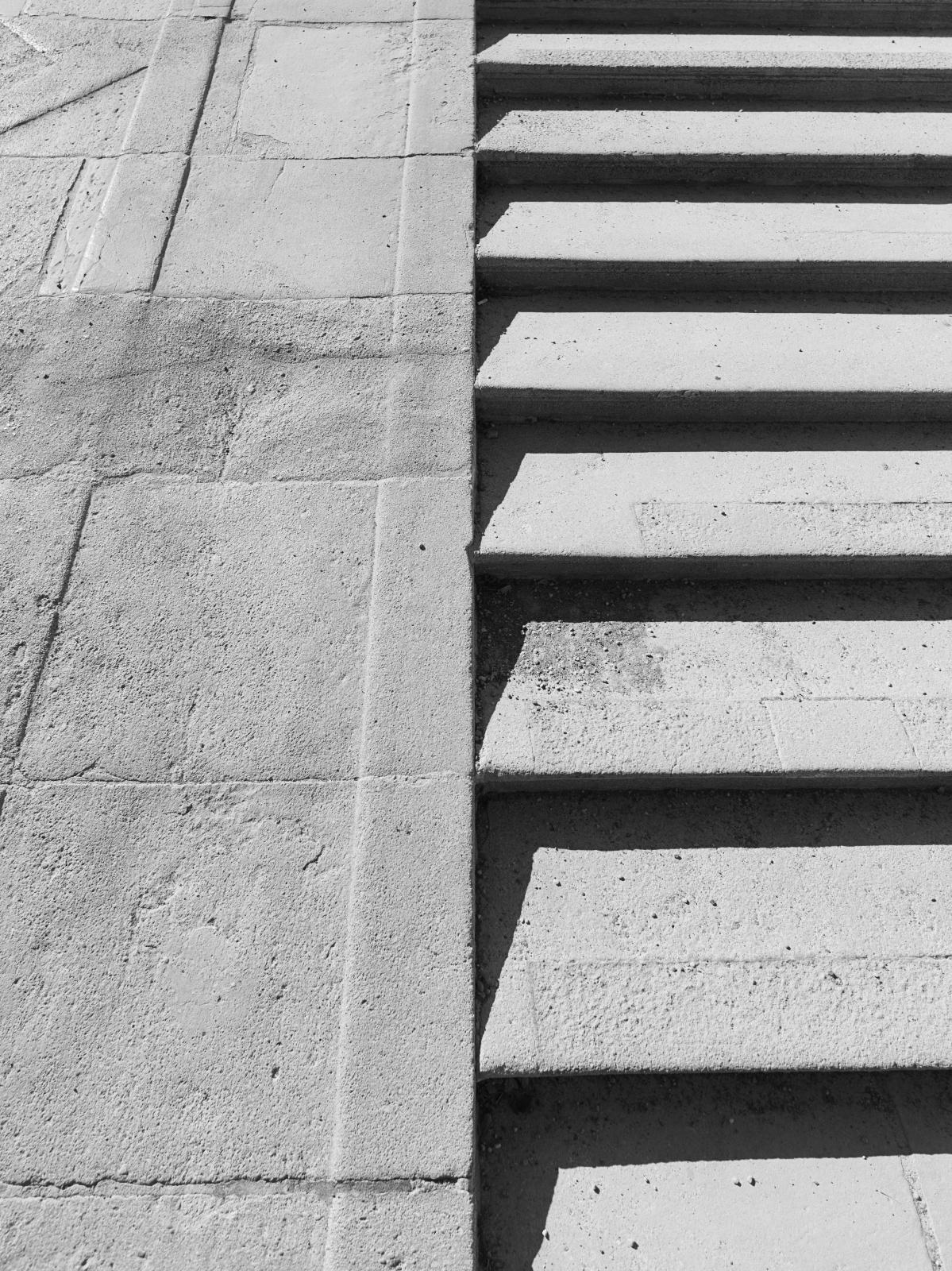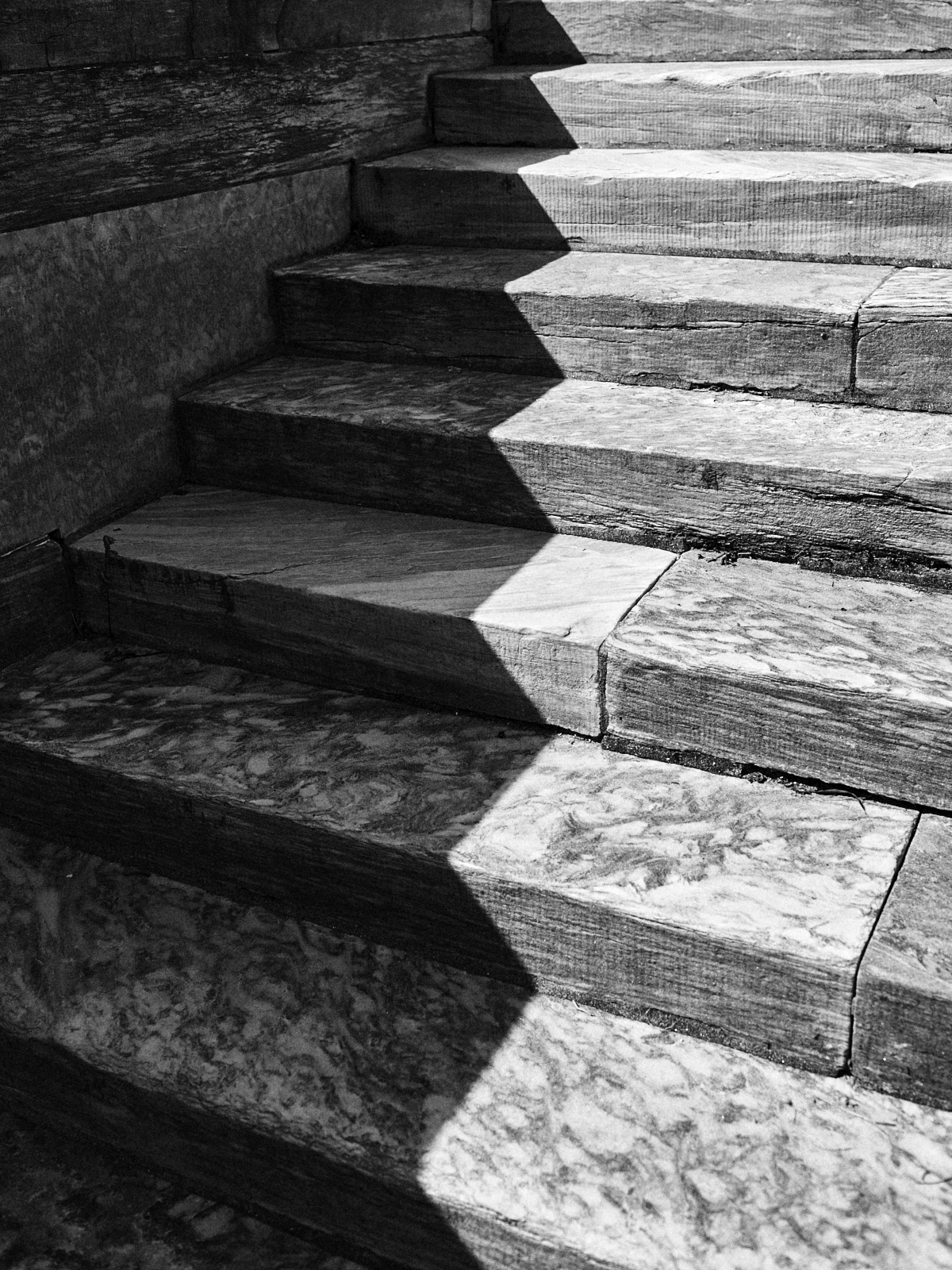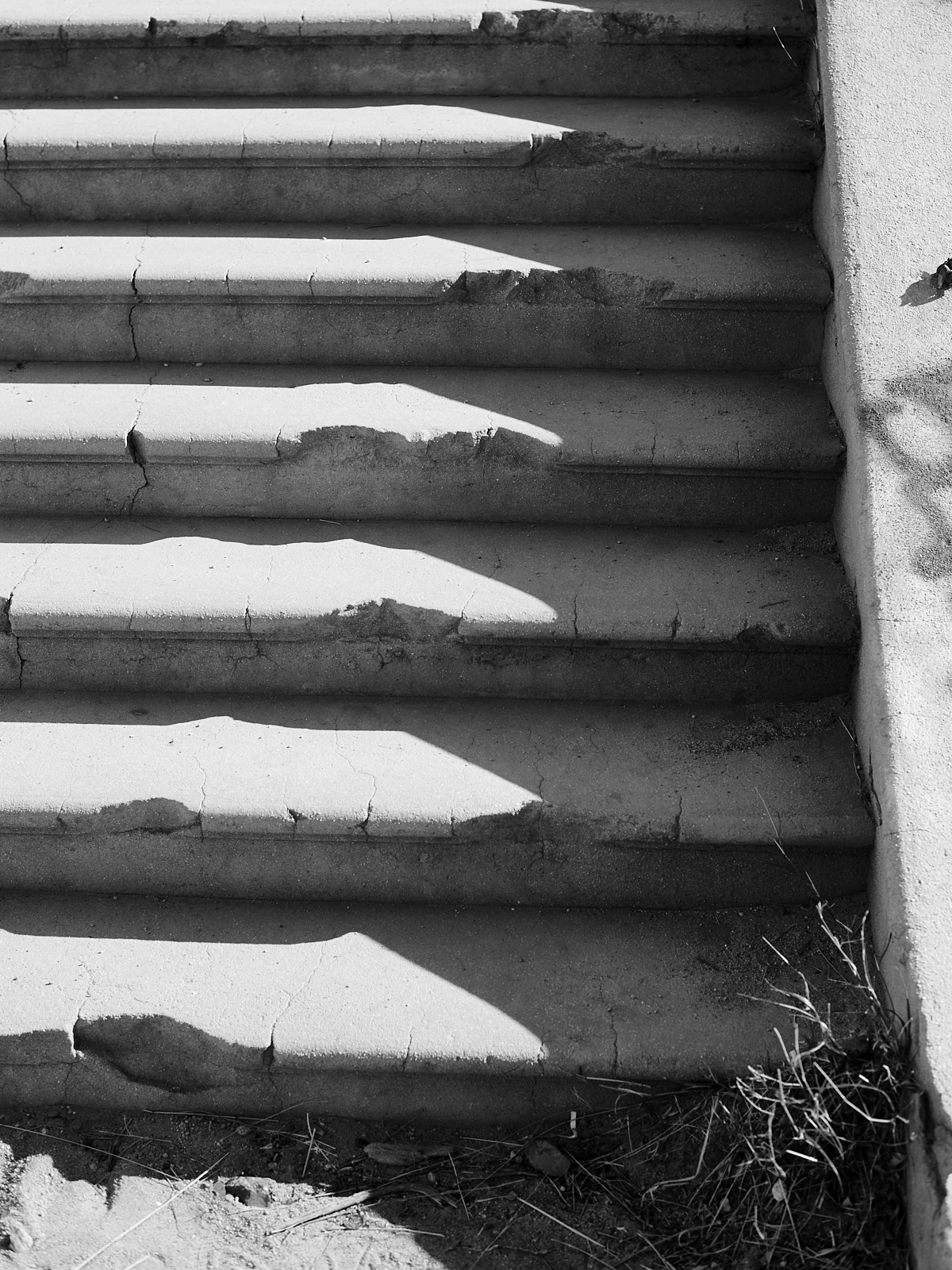The patterns created by the stairs and shadows intrigued me, as did the contrast between the parallels of light and dark, on the right, and the smooth, evenly lit surface on the left. I like the photograph I made that summer afternoon, I like it because it reminds me of the afternoon wandering the gardens, and I like it because I think the two halves present an interesting contrast. But somehow the photo doesn’t capture what I saw in my mind when I took it. It falls short of my imagined picture and include aspects that distract. But I still like this photograph.

My dissatisfaction with this photo has nothing to do with the picture itself and everything to do with how the picture fails to compel the real world to conform to the image in my head. A translation error prevents me from mapping the ideal world onto the physical world, the world in which I live. I am reminded of Plato’s story about the Demiurge, his quasi-divine, omniscient but far from omnipotent creator. This Demiurge was burdened with creating the messy, flawed world we humans inhabit out of some ideal, eternal, and immaterial world of forms. In every instance, however, the Demiurge was thwarted by the recalcitrant matter that refused in random and unpredictable ways to conform to the plan. We are left with the flawed, decaying real world filled with things that only approximate their ideal models. With every photograph I am enacting in some limited, two-dimensional way the Demiurge’s struggles. I have access to an ideal photograph that exists only in my imagination, but my efforts to realize that photograph always fall short because the world refuses to conform to my ideas.

The contrasting halves, the crooked lines converging at the top, the tooling marks on the steps, the eroded stone captured my attention. I took a dozen photos of this scene, and although I like this one most, it too fails to capture what I saw. Within the self-help and motivational cottage industry there is a sector devoted to the pursuit of perfection. On the one hand, somebody with a fancy wireless mic pacing around a stages for three to ten minutes urges us to stop letting the idea of perfection paralyze us. The self-help language stretches and distends the aphoristic: “Perfect is the enemy of the good.” On the other hand, somebody, often on the same stage with the same fancy wireless mic and for the same three to ten minutes, reminds us that by striving for perfection we can achieve greatness. The motivational language expands and dilates the aphoristic: “…if we chase perfection we can catch excellence.” The messages are honest, earnest, and affirmational.

The fractured steps, the weeds, and the graffiti all attest to the impermanence and imperfections of human creation. Plato’s Demiurge never stopped creating imperfect, flawed, degenerate and degenerating things. The goal was not to produce perfect but to produce imperfect. For by considering the limitless series of imperfect humans might glimpse the perfect, or at least imagine it. The imperfect encourages us to reflect, to contemplate, and to imagine. So celebrate the imperfect for it is the only way to bridge the gap between the real and the imagined.